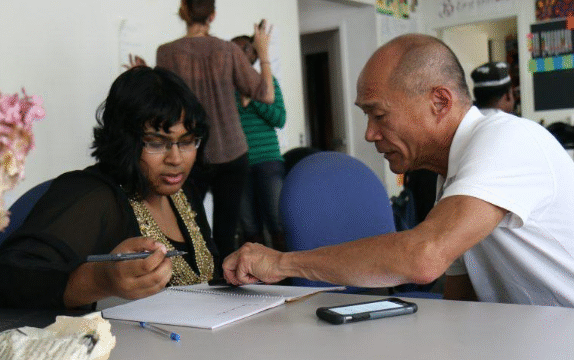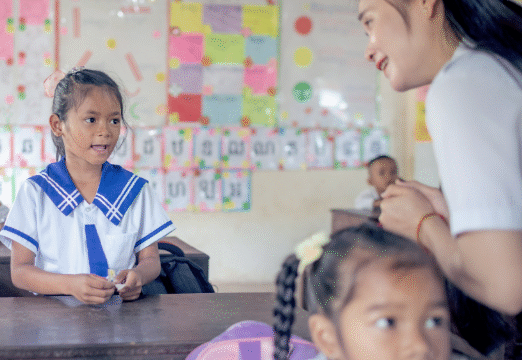Education is often thought of as something that belongs
to childhood, with images of classrooms, textbooks,
and young learners filling our minds. Yet, learning does
not end when school years are over. For many adults, the chance to strengthen literacy skills or return to education later in life opens doors that were once closed. Adult literacy and continuing education are vital pathways that support personal growth, improve job opportunities, and strengthen communities. These programs are not just about catching up on missed schooling, but about creating new possibilities for adults who want to enrich their lives and those of their families.
Literacy is more than just the ability to read and write. It is the key to navigating daily life, from understanding health information and managing finances to communicating effectively and accessing community services. When adults struggle with literacy, they may face barriers in employment, personal independence, and even in supporting their children’s education. Adult literacy programs offer a chance to break down those barriers. They provide welcoming environments where learners can improve reading, writing, and numeracy at their own pace, often guided by supportive teachers and peers who understand their unique journeys.
Continuing education, on the other hand, takes the idea of lifelong learning further. It includes opportunities for adults to pursue formal or informal courses after their initial schooling years. These may range from vocational training and professional development to personal interest classes and higher education degrees. The beauty of continuing education is that it adapts to the needs and interests of adult learners. Some people may return to school to change careers, while others might study for personal enrichment or simply to keep their minds active and engaged.
The impact of adult literacy and continuing education programs extends well beyond the individual learner. When an adult gains confidence in reading and writing, it often transforms their family life. Parents who strengthen their literacy skills are better able to help their children with homework, read bedtime stories, or engage in school activities. This creates a cycle of learning and encouragement that benefits the next generation. Communities also feel the impact when residents are more engaged, informed, and prepared to participate in civic life. Local economies grow stronger as more adults gain qualifications and pursue better-paying jobs. In this way, adult education is an investment in both people and society.
It is important to recognize the courage it takes for adults to return to learning. Many learners feel nervous about stepping into a classroom after years away from school. They may worry about judgment, struggle with self-doubt, or juggle responsibilities such as work and family. Programs that focus on adult literacy and continuing education often understand these challenges and create supportive, flexible environments. Classes are designed to be accessible, with schedules that fit around jobs and childcare. Instructors are trained not just in teaching, but in encouraging and motivating learners who may have faced barriers in the past. This supportive approach helps adults see education not as something intimidating, but as a welcoming opportunity.
Technology has also changed the way adults can access literacy and education programs. Online learning platforms, mobile apps, and digital resources allow learners to practice reading, writing, or other skills from the comfort of their homes. Virtual classrooms make it easier for people in remote areas or with limited transportation options to continue their studies. At the same time, traditional in-person programs remain important, as they offer face-to-face support and a sense of community that many learners find motivating. The combination of digital tools and personal connections creates a more flexible and inclusive learning environment.
Adult literacy and continuing education are not just about academic skills. They often help learners build confidence, resilience, and problem-solving abilities. For some adults, the classroom becomes a place where they rediscover their love of learning and reconnect with dreams they had set aside. For others, it provides a practical step toward a better job or career advancement. Employers benefit when workers gain new skills, as businesses become more productive and adaptable. The ripple effects are wide, showing how education truly is a lifelong gift that continues to give.
Support from communities, governments, and organizations plays a big role in ensuring these programs thrive. Funding for adult education often helps keep classes affordable or even free, which is essential for learners who may not have the financial means to pay for tuition. Community centers, libraries, and nonprofit organizations frequently offer programs that are welcoming and accessible. Employers sometimes sponsor continuing education opportunities for their staff, understanding that investing in people benefits everyone. When there is collective commitment to adult education, the opportunities for growth multiply.
Another important aspect of adult literacy and continuing education is the sense of belonging and connection they create. Many adults who return to learning find themselves in classrooms with peers who share similar challenges and goals. Friendships often form as learners support one another, celebrate progress, and overcome obstacles together. This sense of community is powerful because it reminds learners that they are not alone in their journey. Education, at its best, is not just about acquiring knowledge, but about building relationships and fostering hope.
As the world continues to change rapidly, lifelong learning becomes more important than ever. New technologies, evolving industries, and shifting job markets mean that adults must be adaptable. Continuing education provides the tools to keep up with these changes, ensuring that people remain competitive in their careers and confident in their abilities. Beyond work, lifelong learning helps adults stay curious, engaged, and open-minded. It encourages exploration of new interests, cultures, and ideas, enriching life at every stage.
Ultimately, adult literacy and continuing education are about empowerment. They give individuals the power to take control of their futures, whether that means securing a better job, being more involved in their children’s education, or simply gaining the confidence to express themselves more fully. They also remind us that education is not confined to a single stage of life. Learning is a continuous process that can bring joy, opportunity, and growth at any age.
In celebrating adult literacy and continuing education, we acknowledge the resilience of learners who return to the classroom and the dedication of educators who guide them. We also recognize the broader truth that education is not just a childhood privilege, but a lifelong right. Every adult who embraces the opportunity to learn contributes to a stronger, more inclusive, and more hopeful future for all.






